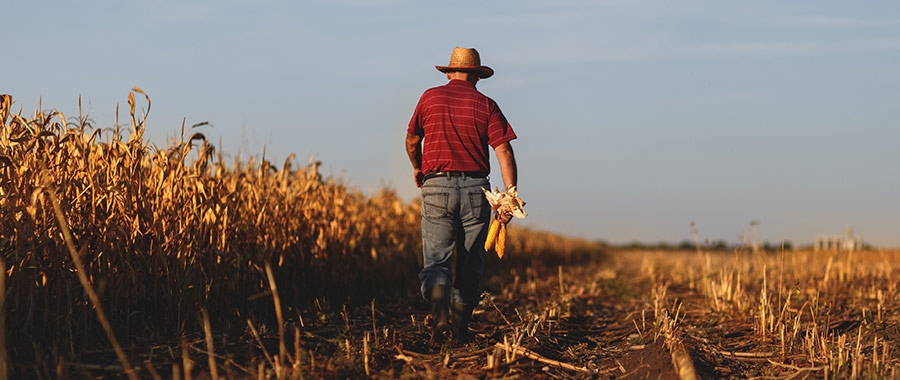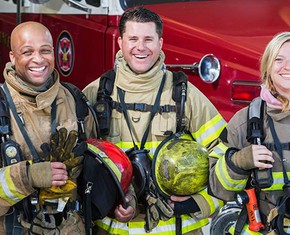The views expressed in our content reflect individual perspectives and do not represent the authoritative views of the Baha'i Faith.
My husband John and I went to a large agricultural fair this weekend—we had a great time visiting traditional exhibits of vintage farm machinery and hand tools.
We watched a rodeo, a lumberjack competition, and barn raising. We even saw square dancing tractors. (Yes, there is such a thing.) Maneuvered through actual square dance patterns with a live caller, those tractors seemed almost as nimble as human dancers. The costumed drivers looked joyful even as they concentrated on operating machinery in such an unusual, at times even dangerous, way—to the delight of the crowd.
Looking around the large audience, I saw a wide spectrum of people including city and country folks, older people possibly reliving their own roots, and busloads of school children on an outing. I think the reason for the broad range of visitors is a universal connection to our planet and each other through farming. Taking a day to celebrate agriculture enriched, educated, and entertained us.
The Baha’i teachings describe the role of the farmer as a lofty one. We are grateful for the labor that raises our food, and we acknowledge the farmer’s role in both local and worldwide economics. As Abdu’l-Baha wrote in discussing a future economic system:
… we must begin with the farmer; there will we lay a foundation for system and order because the peasant class and the agricultural class exceed other classes in the importance of their service. – The Promulgation of Universal Peace, p. 312.
To learn more about farmers today, I did some research and was particularly impressed by this statement on Greenpeace’s website:
Agriculture is by far the biggest business of the world. It is estimated that 2.6 billion people or 40 percent of the world’s population are small farmers. The large majority of them cultivate less than five acres of land. Small-scale farmers form the larger part of global agricultural land, produce most of the global food and at the same time host the majority of poor and hungry worldwide.
As I reflected on this, I wondered especially about small farmers and their daily lives. Does our public policy give priority to improving farm methods and distribution systems, ensuring food security, and raising the living standards of farmers? What about my own actions as an individual consumer? I do try to support local farmers and seek Fair Trade items if they’re not locally grown or processed. Beyond that, I can add my voice to the larger public concern in defense of farmers and farm laborers everywhere.
The answers to these complex issues will materialize as we further integrate the principle of justice into our society and our world.
The agricultural fair we visited, representing both large and small farming, displayed the broad convergence of traditional practices and contemporary issues. We saw many exhibits with themes such as rainwater harvesting, sustainable agricultural practices, backyard and patio farming ideas, organic gardening, responsible trail habits, and eco-friendly commercial products. I noticed school groups paying close attention to these exhibits. Even if most of the children will not be farmers, they will have opportunities to implement these ideas in other ways.
Though I was raised as a city girl, I’ve been to many county and state fairs over the years.
Each time I learn something new and am reminded of the importance of farmers. This may sound obvious, but in a frequently busy and increasingly commercial urban environment, it is good to be reminded about the foundations for agriculture laid by previous generations.
As we drove home, I recalled the advice “If a farmer didn’t grow it, don’t eat it.” Looking forward to my supper of fresh foods, the words that went through my mind were “Thank you, Farmers.”
This series of essays comes from Jaellayna Palmer’s newly-published book, Personal Path, Practical Feet, which is available here.
















Comments
Sign in or create an account
Continue with Googleor